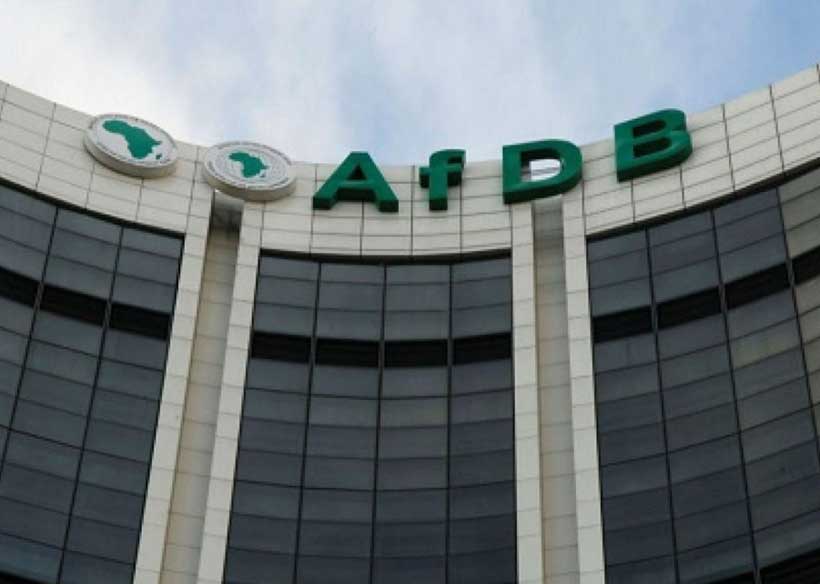AfDB Unveils 2025 Tunisia Report: Path to Inclusive Growth Through Capital Mobilization
The report, launched on 7 July 2025 at a high-level workshop in Tunis, outlines strategic recommendations to steer the country toward more inclusive, resilient, and sustainable economic growth through better mobilization and deployment of its human, financial, and natural capital.

- Country:
- Ivory Coast
The African Development Bank (AfDB) has officially released its 2025 Country Focus Report for Tunisia, a forward-looking policy document titled “Unlocking Tunisia’s Capital for Sustainable Development.” The report, launched on 7 July 2025 at a high-level workshop in Tunis, outlines strategic recommendations to steer the country toward more inclusive, resilient, and sustainable economic growth through better mobilization and deployment of its human, financial, and natural capital.
High-Level Launch Highlights Inclusive Dialogue
The launch event brought together Tunisian government officials, private sector leaders, civil society organizations, and development partners to deliberate on the nation’s economic reform agenda. It served as a platform for robust policy dialogue centered on fostering structural transformation and optimizing Tunisia’s developmental trajectory.
Malinne Blomberg, AfDB’s Deputy Director General for North Africa and Country Manager for Tunisia, opened the event by lauding Tunisia’s inherent strengths—chief among them, a well-educated labor force, a vibrant entrepreneurial ecosystem, and valuable natural resources. These assets, she emphasized, form the backbone of Tunisia’s recovery and long-term potential.
“The report we are presenting today seeks to provide a solid analytical framework for better understanding the drivers of transformation and to inform dialogue around the country’s key economic choices for the coming years,” Blomberg stated.
Economic Recovery in 2024: A Sign of Hope
The report observes a modest but encouraging economic recovery in 2024, with GDP growth rising to 1.4%—a marked improvement from 0.4% in 2023. This rebound was driven by three main factors:
-
A resurgence in agricultural output,
-
Renewed momentum in industrial production, and
-
Continued robustness in the services sector.
On the macroeconomic front, Tunisia saw inflation stabilize at 7%, and the fiscal deficit narrowed to 6.1% of GDP, buoyed by improved tax revenue mobilization. These indicators point to ongoing efforts in fiscal consolidation and macroeconomic stabilization.
Key Structural Reform Priorities
The 2025 report emphasizes that Tunisia must pursue four overarching priorities to realize its development ambitions:
-
Broadening the Tax Base: The current tax framework needs to be more equitable and efficient. Widening the tax base will improve fiscal space and reduce dependency on debt.
-
Energizing the Private Sector: The report recommends developing innovative financial tools—such as green bonds, FinTech platforms, and crowdfunding solutions—to unlock capital, especially for SMEs. Strengthening credit guarantee schemes is also vital to improving access to finance.
-
Enhancing Human Capital: Tunisia’s youthful, educated population is underutilized. The report calls for targeted investments in education, technical training, and entrepreneurship development, especially in underserved regions.
-
Strengthening Economic Governance: The report advocates for more strategic resource allocation, effective public sector coordination, and transparency in decision-making to ensure impactful use of mobilized capital.
Strategic Capital Mobilization: A Multidimensional Approach
A central message in the report is that Tunisia must better harness existing domestic resources while improving the efficiency and effectiveness of capital deployment. This includes:
-
Human capital: Tapping into Tunisia’s skilled labor through workforce reforms, innovation incentives, and targeted skills training.
-
Financial capital: Expanding access to formal financial services for underserved populations and entrepreneurs.
-
Natural capital: Promoting sustainable use of land and water, especially in agriculture and tourism, to drive green growth.
The report urges the Tunisian government to adopt coordinated cross-sectoral strategies, integrate climate resilience into planning, and partner with the private sector and international actors to align efforts with national development priorities.
AfDB’s Strong Partnership and Financial Footprint in Tunisia
As of 30 June 2025, the AfDB’s active portfolio in Tunisia includes 34 operations amounting to €1.70 billion in net commitments. This robust investment spans eight strategic sectors, reflecting the Bank’s holistic development approach:
-
Transport – 34%
-
Water and Sanitation – 17%
-
Agriculture – 15.4%
-
Energy – 12.8%
-
Social Development – 9.9%
-
Finance – 6.3%
-
Industry and Digitalization – 4.4%
-
Multi-sector Operations – 0.1%
The Bank maintains constant dialogue with Tunisian stakeholders, including ministries, private enterprises, and development partners, to enhance the business climate, spur SME-led job creation, and mobilize external and domestic financial flows.
A Roadmap for Tunisia’s Resilience and Renewal
The 2025 Country Focus Report is both a policy compass and a call to action. It seeks to align national efforts with AfDB’s strategic vision for Africa’s economic resilience, particularly in light of evolving global and regional challenges.
By unlocking the full potential of its capital—human, financial, and natural—Tunisia can pave the way for inclusive and sustainable growth that benefits all segments of society.
The AfDB remains a committed partner to Tunisia on this path, pledging continued support to enable a dynamic, inclusive, and resilient economy that fulfills the aspirations of the Tunisian people.
ALSO READ
Xchange.pe: Catalyzing India's FinTech Revolution Through FinBlue Incubation
Crafting Bharat: Unveiling India's FinTech Revolution
Cross-border trade accelerates with fintech, yet unequal access remains a barrier
Cameroon’s Green Gold: World Bank Calls for Forest-Led Growth and Fiscal Reform
Algoquant Fintech Secures Major Boost with Rs 280 Crore Credit from Axis Bank










